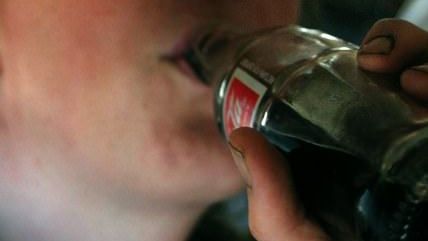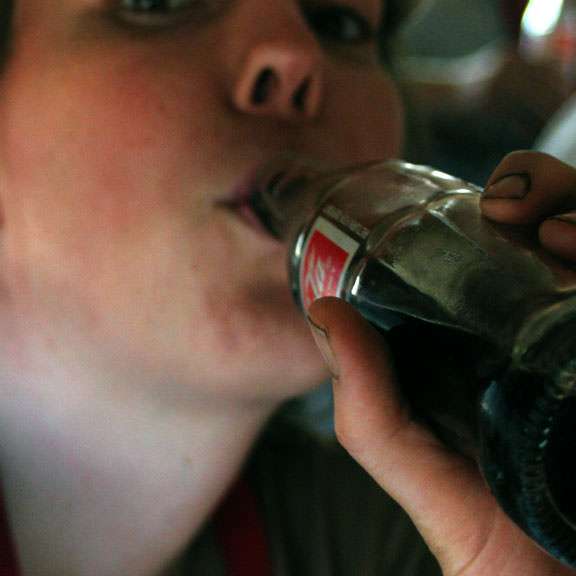New York City's Soda Ban is a Loser
New York City's ridiculous soda ban had its final day in court this week. Here's why the state's highest court should strike down the ban.


This week the New York State Court of Appeals, the state's highest court, heard New York City's appeal of the city's soda ban. The ban has already been soundly rejected ("slammed down," as one New York news station puts it) by two lower courts in the state. It's also faced furious opposition from millions of New Yorkers and Americans around the country of all political and ideological stripes, and has served to galvanize the cause of food freedom like perhaps no other issue to date.
This week's hearing served as a reminder that the ban may be on its last legs. If the Court of Appeals upholds the lower court rulings, then the ban is as dead as I predicted it likely would be back in August.
The particulars of the case heard by the court this week revolve around a question of whether, under New York state law, an administrative agency such as an unelected city health department has the authority to put in place a regulatory ban like the one New York City's health department adopted in May 2012.
Both lower courts said the city did not, and said so rather firmly. Each ruled the ban was an arbitrary and capricious prohibition adopted by an unelected health board whose members were all appointees of then-Mayor Michael Bloomberg. In New York State (as elsewhere in this country), it's elected officials who have plenary power to make law.
In that sense, many of the ramifications of the soda ban case will stay within New York's state borders.
"It's a test case, but it's really only a test case for New York," I told Politico earlier this week. "It's not really like a food issue per se; it's just whether the health department and Mayor [Michael] Bloomberg and now Mayor [Bill] de Blasio have overstepped their authority."
And they have.
If New York City loses this case, as expected, I anticipate de Blasio will attempt, as he's suggested he may, to gauge city council interest in passing a similar ban through legislative means. This would negate (at least in theory) some of the state courts' concerns about health department overreach.
I doubt strongly that the city council would bite--given how unpopular the ban is with both the council and the people who elect them. But in the unlikely event of a city council vote in favor of a soda ban somewhere down the road, then I suspect some or all of the diverse parties to the present lawsuit—groups representing unions, beverage makers, and minority businesses—and others would sue the city in federal court to block such a law. In doing so, they'd be both within their rights and standing up for theirs, mine, and yours.
Hypotheticals and the nuances of New York State administrative law aside—and setting aside the fundamental food freedom argument I've made against the ban time and time again—it's important to remember an important reason that New York City's soda ban was a born loser.
That reason? The city has failed to state even a rational basis for the law, suggesting any specific or even general notions about whether—or how much—the soda ban would actually achieve its goal of reducing obesity. The one study the city initially cited in support of the ban, a 2005 Annual Review of Public Health journal article titled "Economic Causes and Consequences of Obesity," suggests that soda is not the cause of rising obesity rates. "The published evidence, although not conclusive, suggests that technology may be primarily responsible for the obesity epidemic." In other words, the city health department based its soda ban on a study that found iPads and Xboxes were the likely causes of rising obesity rates.
Consequently, you won't find the city predicting anywhere (or, at least, anywhere I've seen) how its soda ban would translate into better health outcomes. Like its deficits in terms of legality and freedom, the science in support of the ban just isn't there.
But that hasn't stopped the city from claiming otherwise.
"The category of (banned) products is based entirely on scientific evidence," city attorney Richard Dearing argued before the Court of Appeals this week.
Hogwash.
"Couldn't you ban hamburgers altogether from New York City?" Jonthan Lippman, the court's chief judge, asked Dearing, according to a Wall Street Journal report.
Dearing told Judge Lipman "that the city could 'take an appropriate step' if the scientific evidence existed."
And since no such scientific evidence exists for the soda ban, Dearing has given the New York State's Court of Appeals yet another reason to uphold the lower court rulings striking down the ban.


Show Comments (58)